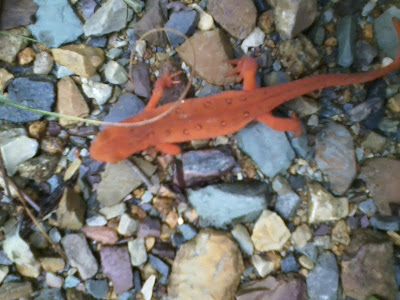Think of a pile of sand. Now, drop a single grain of sand on the pile, another, and another. Eventually, an avalanche will occur. I understand that studies (Bak, Tang, Weisenfeld) have shown that it is impossible to predict when the avalanche will occur, and the size of the next one. Folks have applied this thinking to other things than sand, such as falling empires (think Arab Spring) and financial crises (consider 2008).
When someone asks me what caused our current financial crisis, as if I know anything about this, I wonder where to begin. The instability of the entire system might be a good start. We've managed to do very little about this in 4 years. Or I could begin to list reasons, like grains of sand, and within a few minutes our eyes glaze over.
Why even ask the question? Well, as with anything, we like to know the answer, or at least we like to think we know the answer. Having an answer makes us feel good, or at least, better. Having our answer challenged, even if we realize it's garbage, can throw us into convulsions. There's more to it. To improve our plight, we'd like to learn from our mistakes. Unfortunately, we tend to get tied up in knots when several hundred legislators have to agree on how we implement our solutions.
In a similar transfer of knowledge among disciplines, Xavier Le Pichon, a geophysicist, transmutes his knowledge of plate tectonics to human behavior. As a scientist, he observed that weaknesses, imperfections and faults facilitate the evolution of a system. A system that is too perfect is too rigid and can evolve only through revolution, a major commotion. Weak and imperfect systems often evolve more gradually, without revolution. He gives life as an example of a weak system, which evolves based on coding errors during the duplication of genetic information. He suggests that these things are also true of our societies. He says: "[A] society that separates the producers from the others considered as dead weight, even as marginal or excluded individuals, is a hard society, characterized by conflicts and often by complete rejection of minorities. It is sad and pessimistic. On the contrary a society where all are well integrated has a much more adaptable structure, with a different, easier and more conciliatory mode of life. It is often happier and more optimistic." Voila! Another explanation for the Arab Spring.
He adds:
"A society, which is composed exclusively of uniform individuals, without any heterogeneity, is a more rigid, harder society. I have experienced such communities when living on oceanographic vessels, which I have done for a good part of my life. Most of the time, we only had young and middle aged men on board: the crew then formed a community, which was rather rough. The presence of a single woman oceanographer was often sufficient to completely change the atmosphere.
"When examining any system, it is thus necessary to study it as a whole. Its working is determined by the interaction of all the parts. The elimination of parts that may appear as less efficient may significantly change the overall functioning and may actually completely prevent it from working!"
"Maybe you should get involved in some more committees?" says Virginia.
Hmmm, those people who insist on interminable discussions may actually help committees get their work done. Could Congress succeed if it, as an organization, really put its mind to it?



